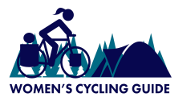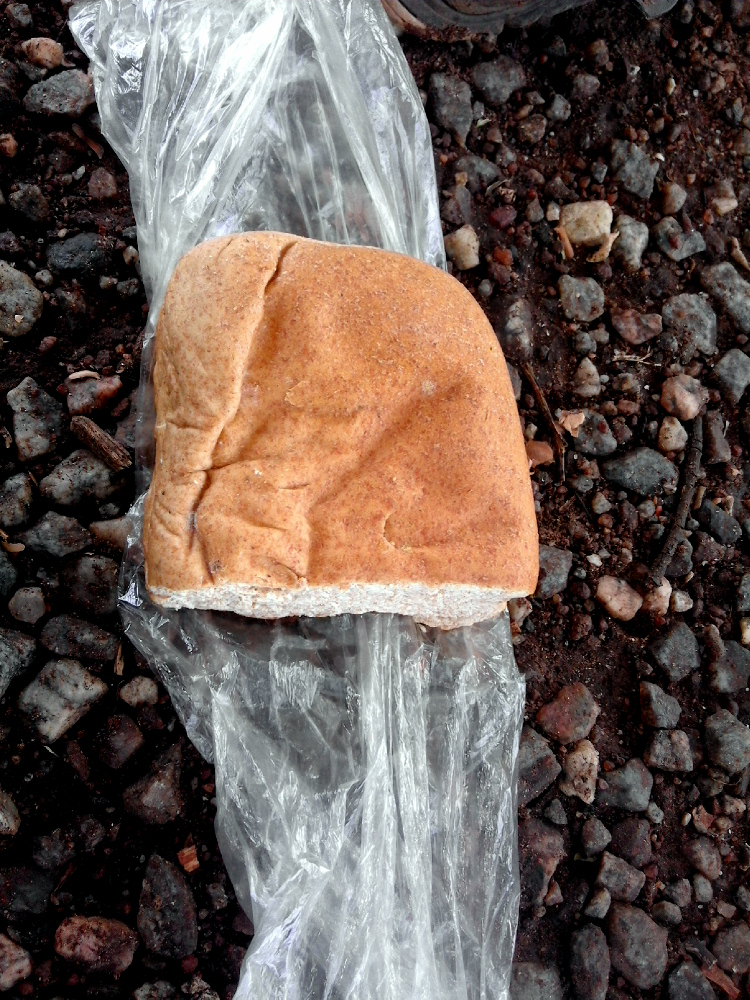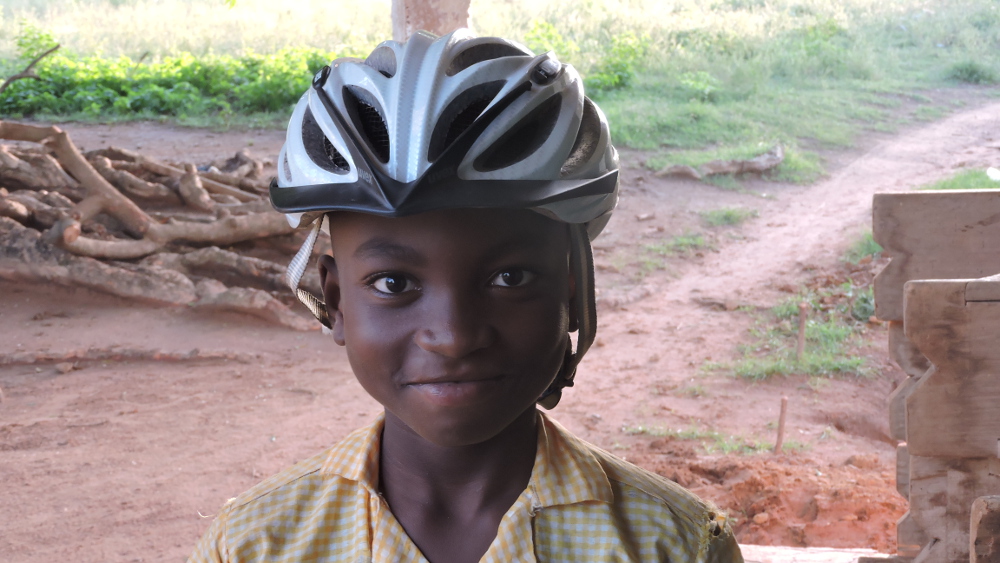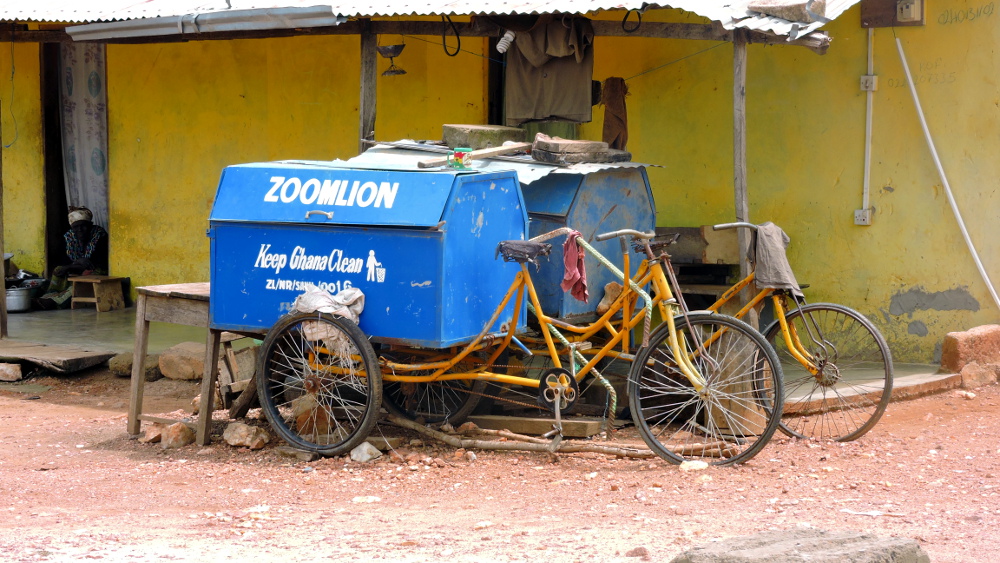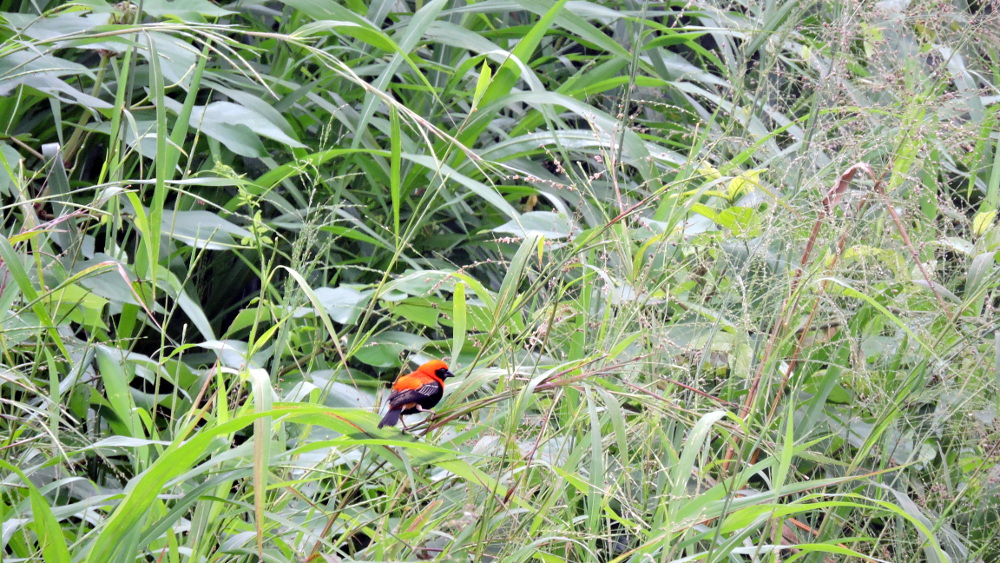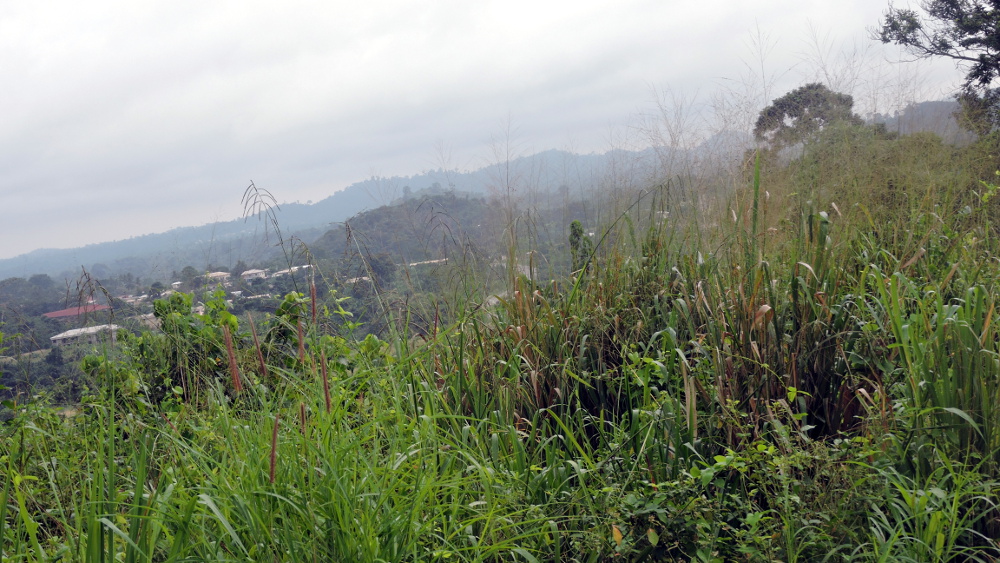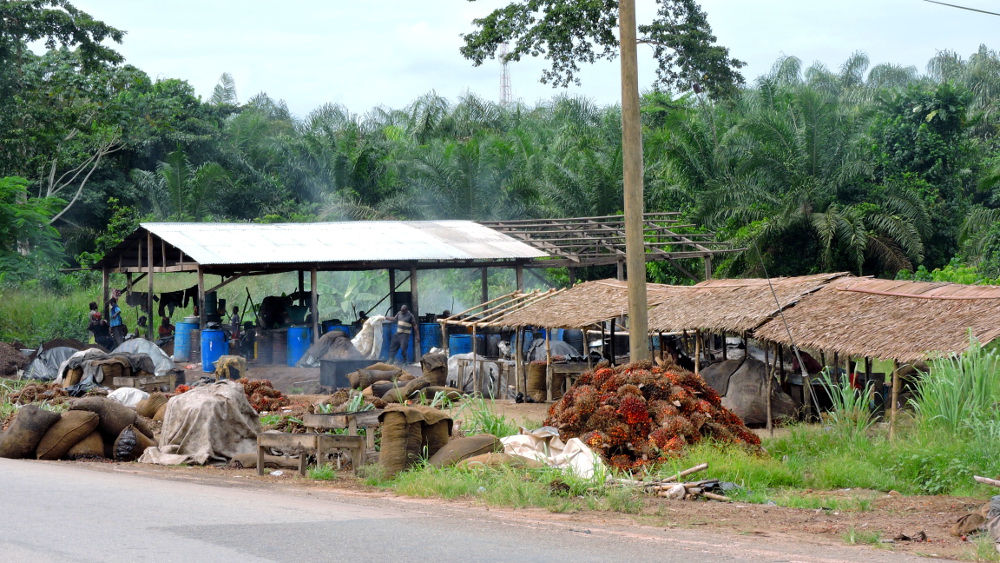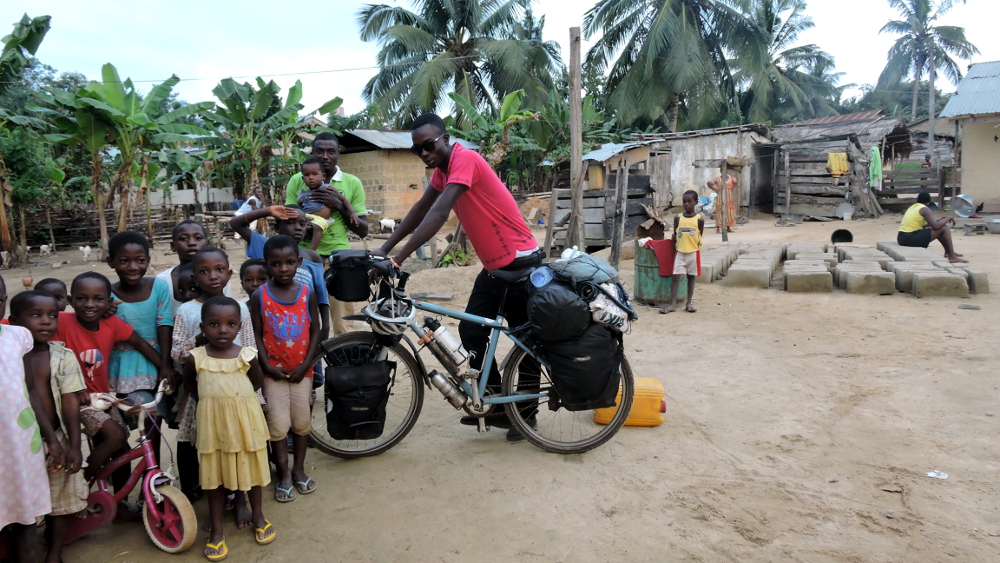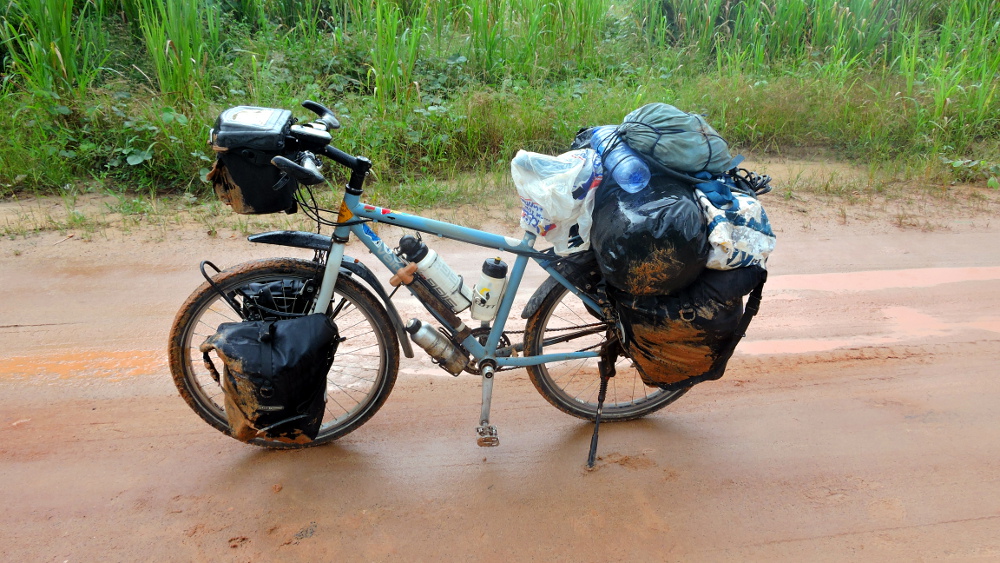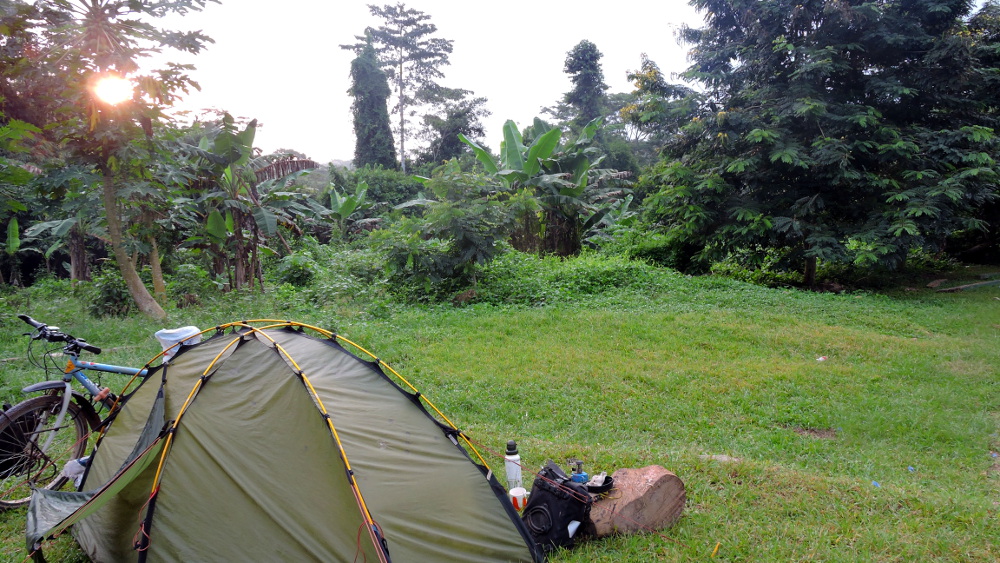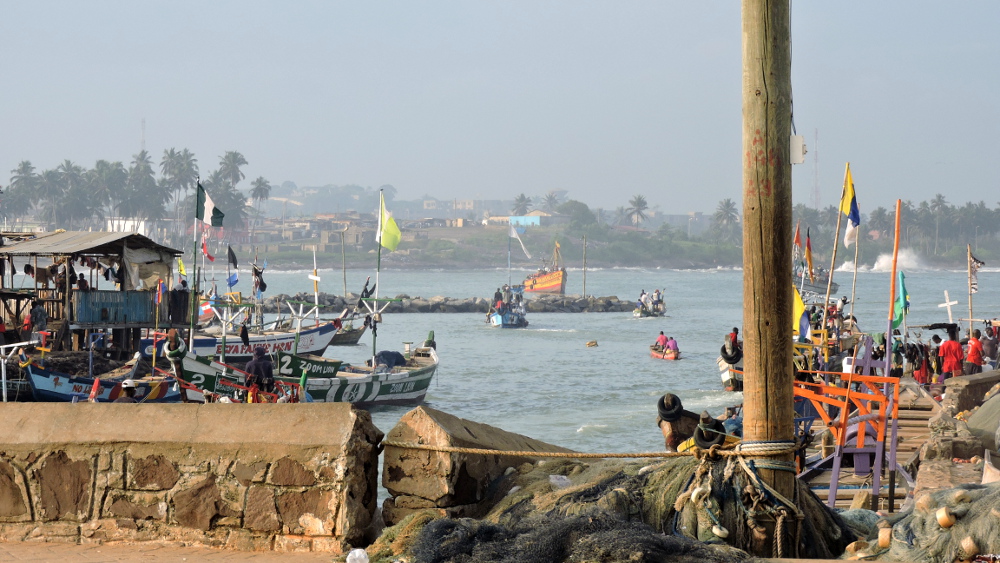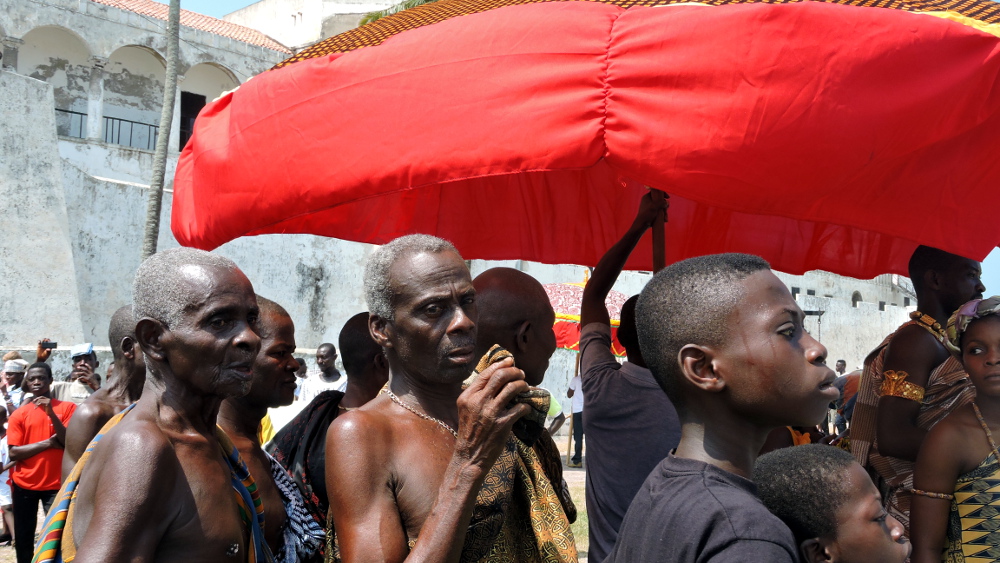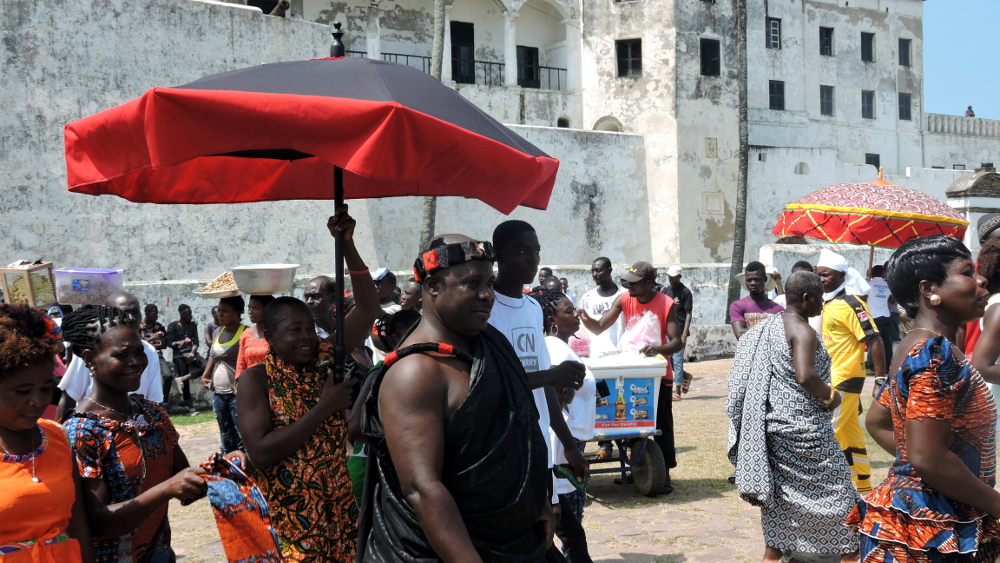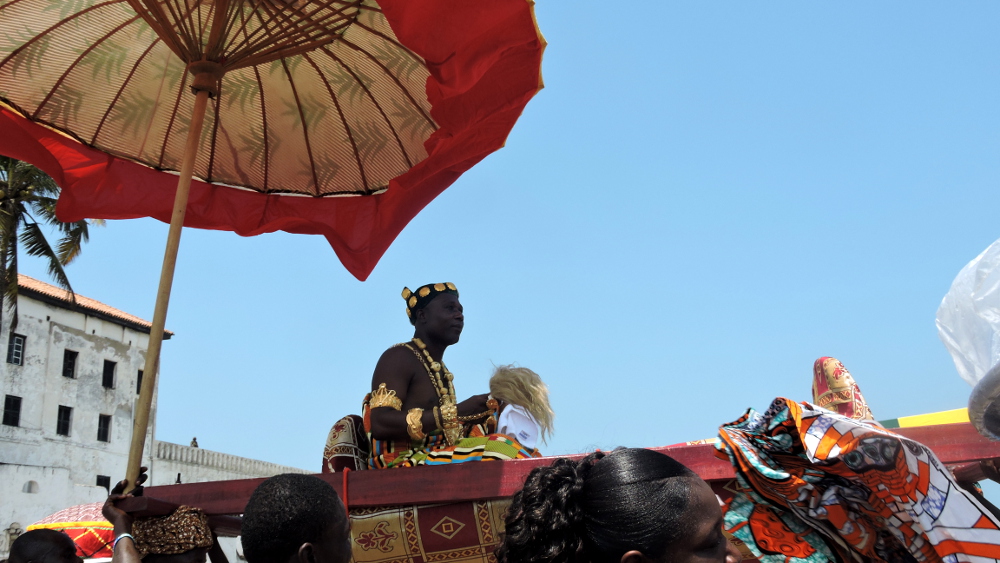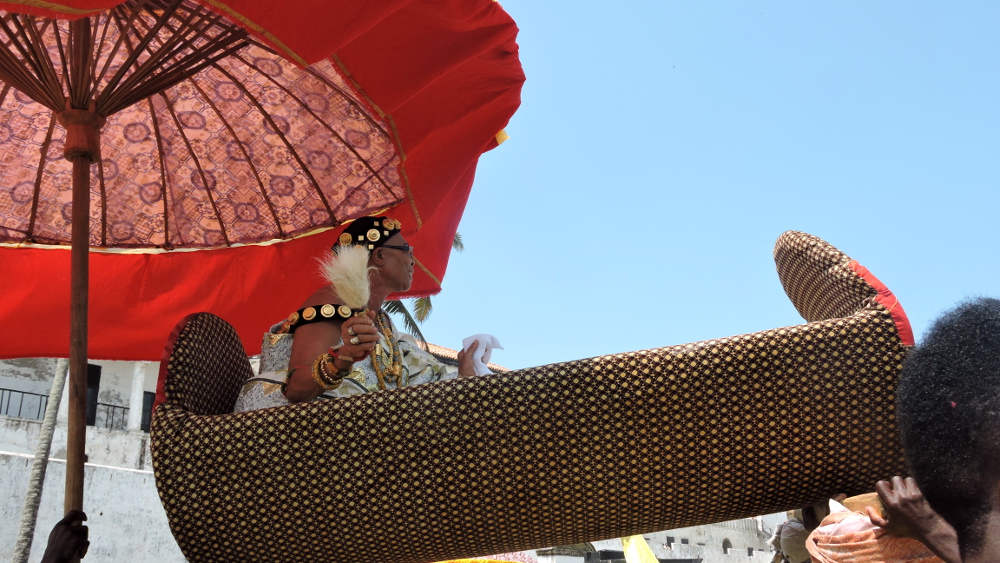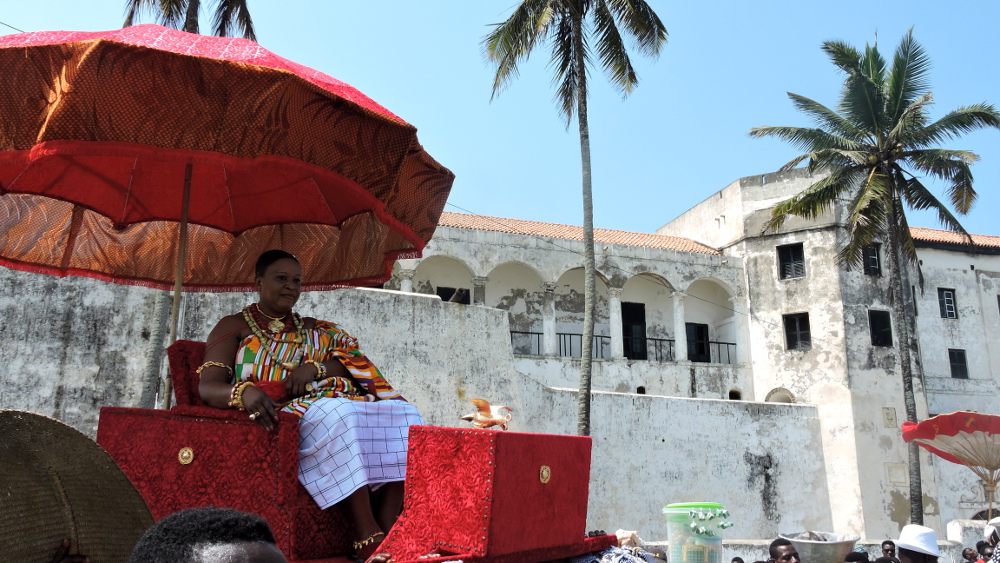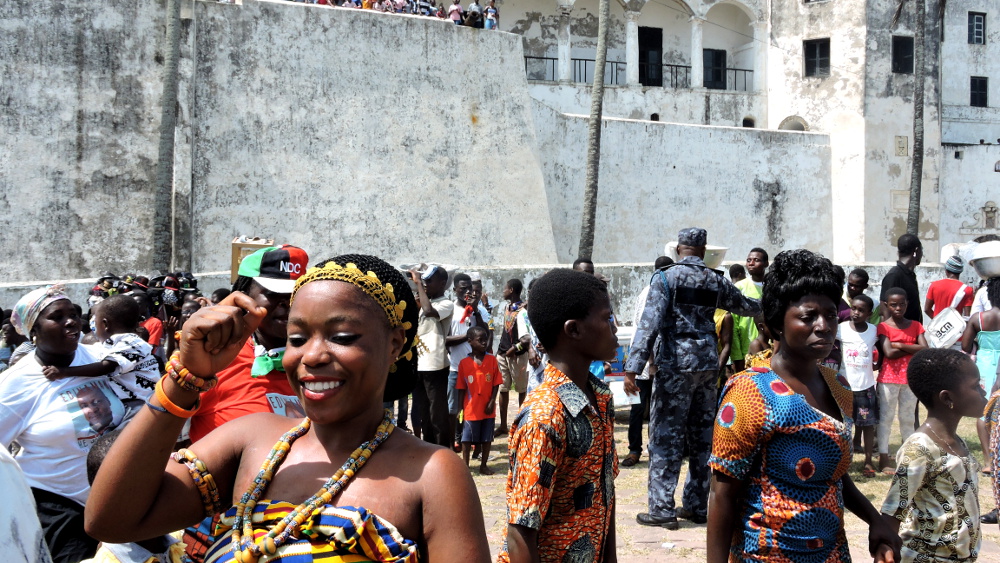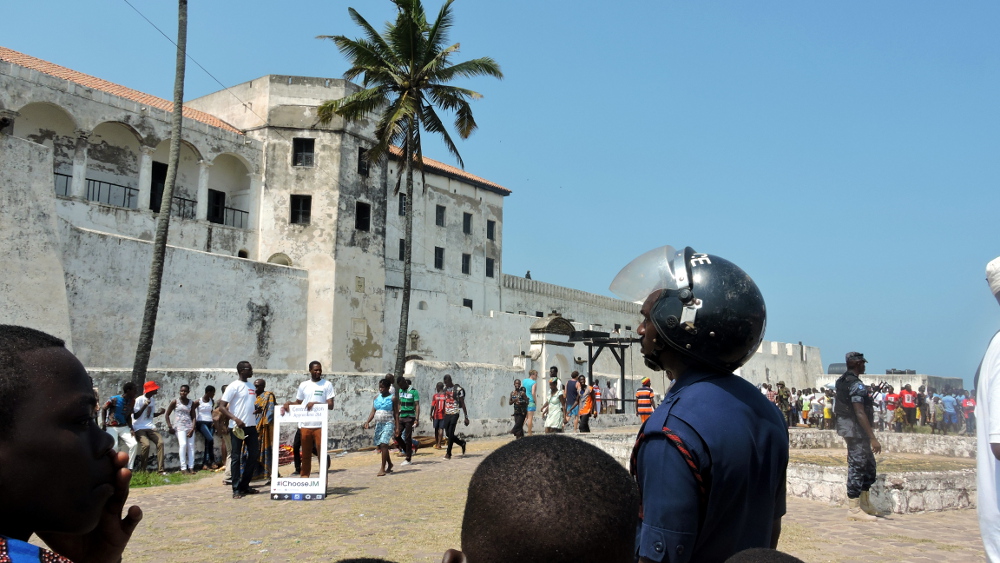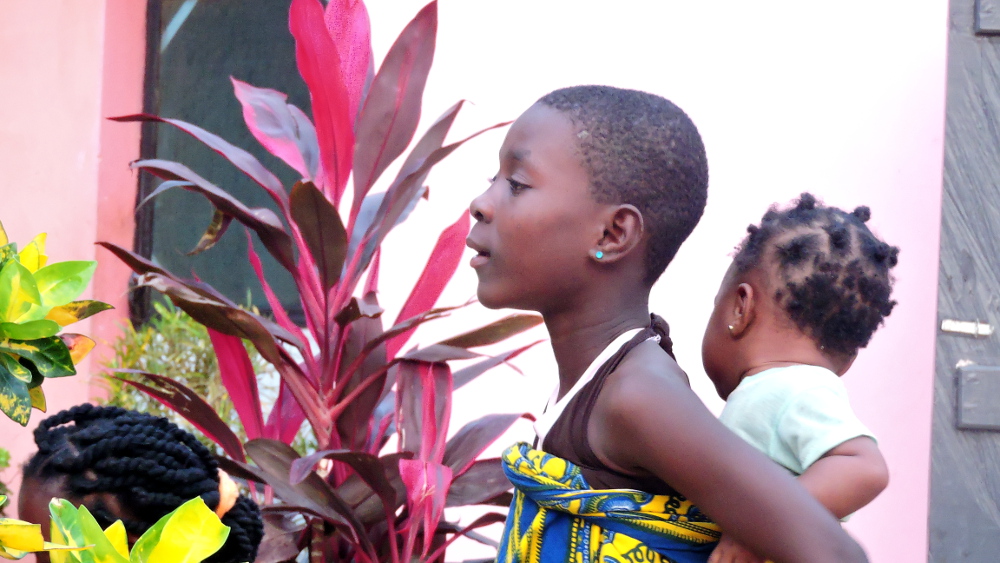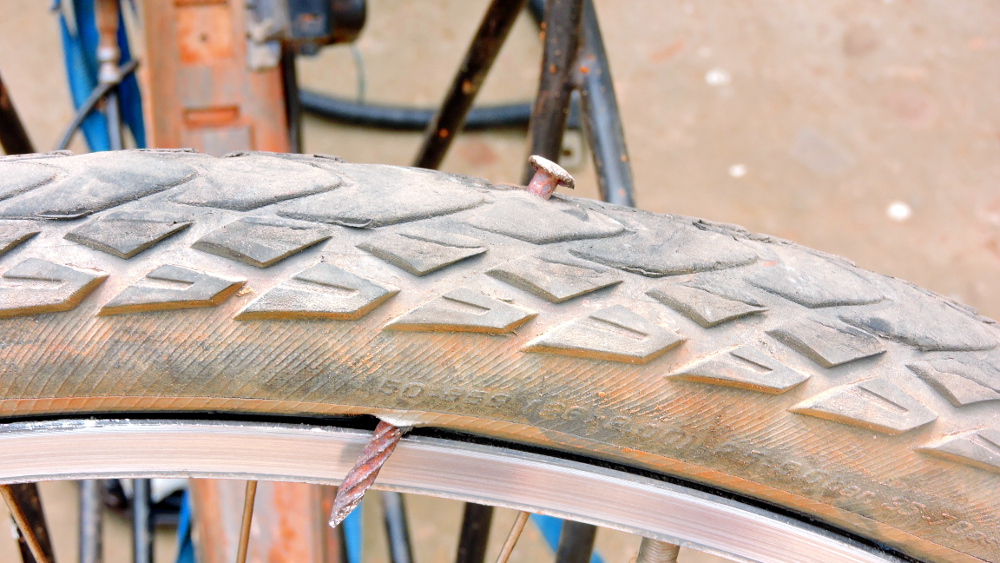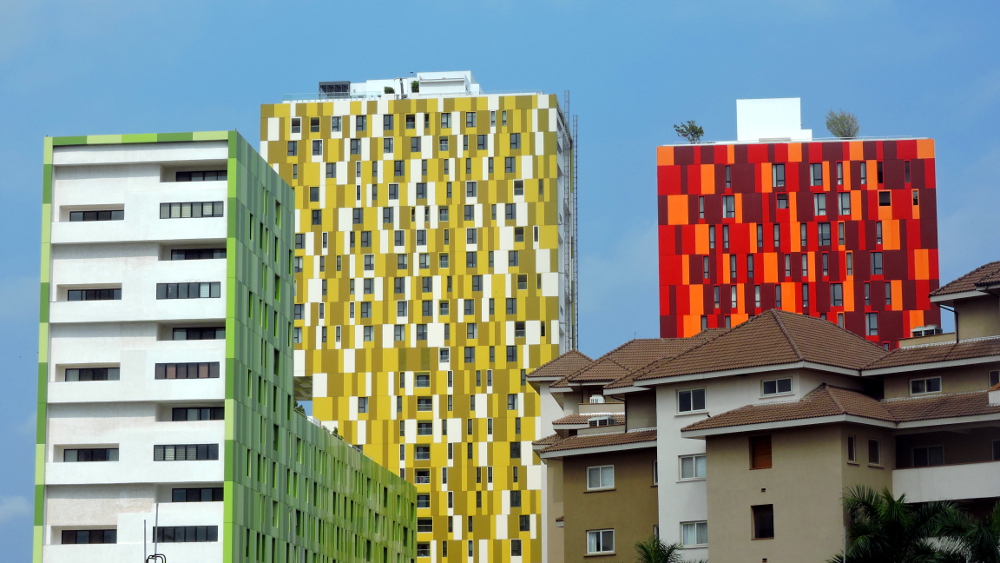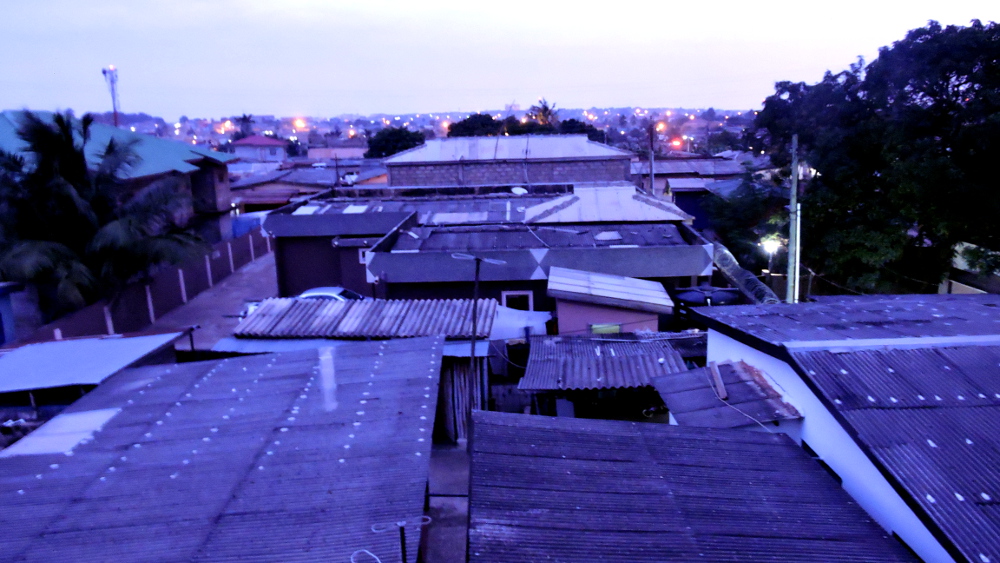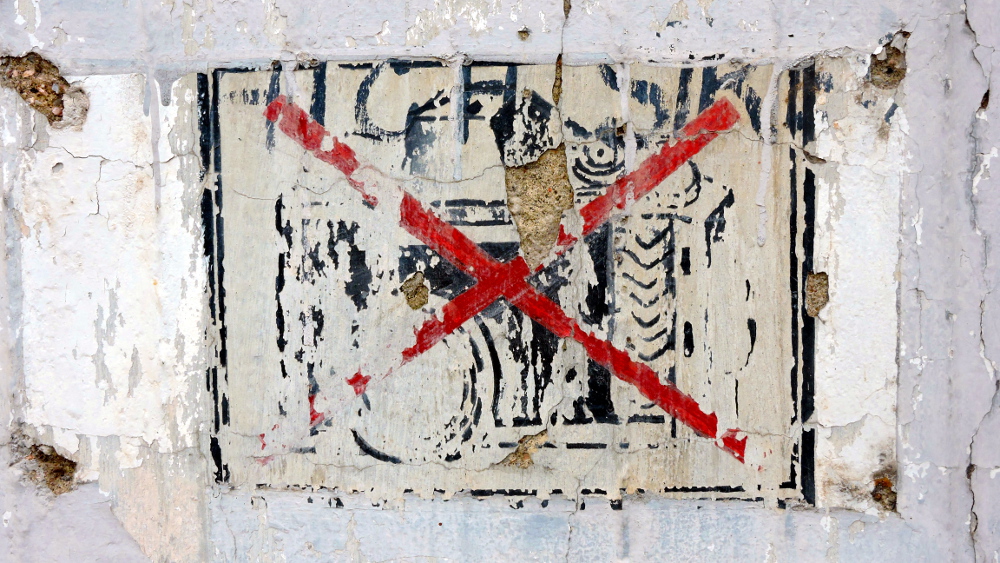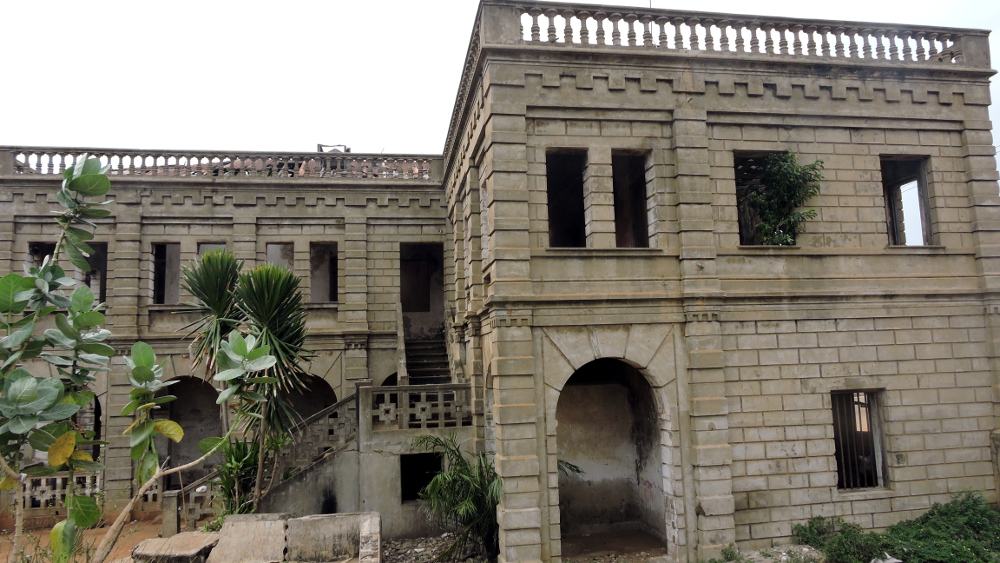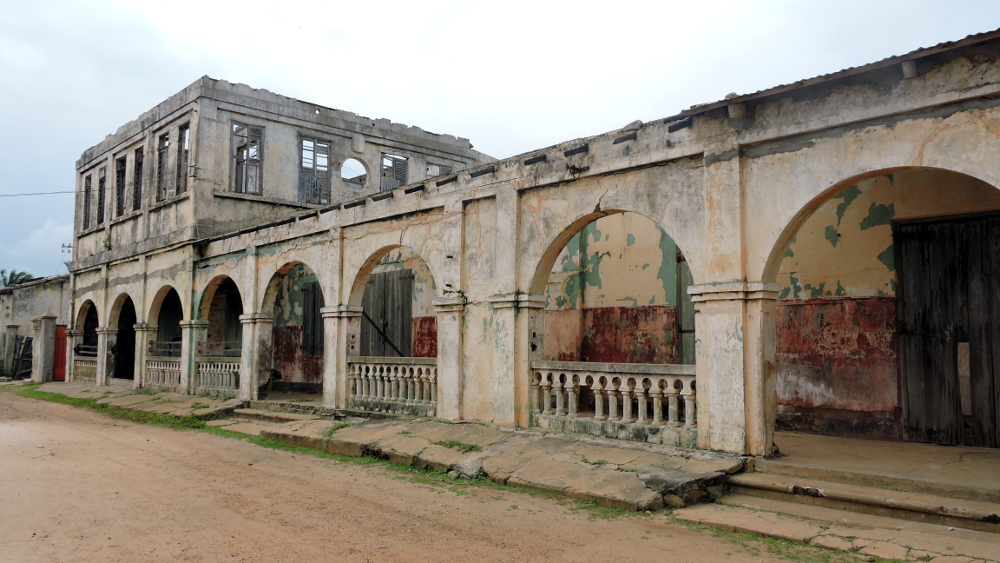Ghana, a different kind of Africa!
The first difference to the previous countries: the administrative language was English which was much easier for me. The second big difference: Ghana was mainly Christian and I’d find out if that was an advantage. In all aspects Ghana appeared a problem-free country which was even confirmed by the German foreign office.
I arrived in Ghana in the evening. Quite different from the border police in Burkina Faso, here I didn’t need to ask for long. A woman was in charge and she was so delighted to meet me that she offered I could camp in her garden. How convenient! And I could use the bucket shower and toilet. A British legacy: sit-down toilets.
The country seemed to be very developed. Even in this remote corner there was electricity but the first 46 kilometers of the road weren’t paved.
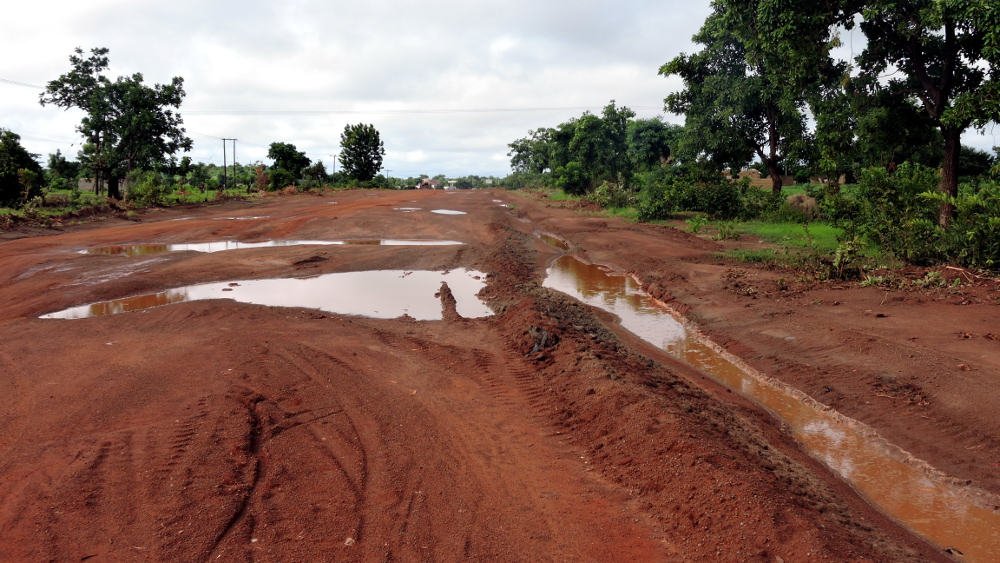
Dirt road in Ghana
There were pretty sign posts with distances. A real exception in Africa.

one of the first road signs
Unfortunately, the bread was also a British legacy and had the consistency of a foam mattress.
And three-prong power outlets which only exist in the UK. By now I had learnt how to use them for a “regular” plug.
Kids on foot or on bike often accompanied me.
I had the impression they thought I might be a talent scout because they were doing tricks or raced after me on foot or by bike. Surely there were talented kids among them.
This little one didn’t have a bike and as consolation, I let him try on my helmet.
I camped next to a catholic church. Here God and Allah lived side by side in peace and harmony. Islam had a significant presence in the north.
Bikes were quite important in Ghana.
They were even used for garbage removal. Real cargo bikes, without motor.
I had wanted to take a detour to Bui National Park but this time I had found out what to expect there. That turned out to be a good thing.
As part of the construction of a dam on the Upper Volta River, the town of Bui, where one could have found accommodation, had been flooded. In this region there was now little left of the national park.
No point in making the detour. A nice young man who let me camp at his gas station was surprised that I had so much information about the park. He didn’t know that I could simply check the internet. Perhaps that shouldn’t have been a surprise.
All animals had fled north and now there wasn’t much to see. That’s how we treat our environmental heritage.
And the rolling uphills and downhills which I had first encountered in Mali continued.
Once in a while there was a colorful bird by the roadside which was the only distraction on this long route.
From Techiman I went to Kumasi, home of the Bamboo Bikes organization.
I was very curious when I’d encounter the first bamboo bikes but eventually I gave up. I didn’t even see regular bikes.
Traffic was catastrophic and I wondered if I was at the right place. The drivers were very aggressive when they saw me. One even yelled at me that this wasn’t done in Ghana. On my way to Bamboo Bikes I got stuck in traffic and gave up.
I found out by email that they didn’t bike in Kumasi and that the workshop was elsewhere. Only their office was here.
I had learned something and had no reason to stay in this town. I continued the next morning.
Finally, the continuous up and down stopped and I could climb a real hill. Then I had a bit of a view of the countryside and the plantations.
landscape of Ghana
In the other countries, mango and cashews trees had grown wild. I could never figure out, who owned them and had the right to harvest. It appeared to me that everyone could come and harvest.
In Ghana there were clear indications. Mangos grew in plantations and there were signs everywhere to “keep off”.
There were more and more palm oil plantations but the traditional way of growing and processing was still dominant.
They used it for a spicy hot sauce which took a lot of effort to make.
In a village I looked for a place to camp. A woman told me, I needed to find the assembly man which was problematic because he wasn’t known. Finally, someone declared he knew who he was and took me. He turned out to be the head of the Pentecostal church.
He was quite young and lived with a large family in a compound which was traditional. His dream was to study engineering in Germany but he didn’t know that German was spoken there.
Before the village I had turned onto a dirt road. I was concerned that it might start to rain and that I’d be stuck in the mud.
And indeed, it rained but I didn’t get stuck in the mud. Instead I went all out and fell into a puddle.
My clothing looked like the pannier bags.
I got closer to Kakum National Park.

Kakum national parc
I turned off in the hope that I could camp here. It was so beautiful and quiet.
Once again, I was lucky. Because I had been on the road for so long and had traveled so far, people were very generous and I had to admit that I enjoyed it. To bike from Germany to Ghana was more than most people could imagine.
For the first time in a long while, probably since Morocco, I slept on soft green grass.
The Coast
Finally, I arrived in Elmina. This is one of the first cities in Africa which I really liked. It was situated on the coast and the Portuguese who built the city in the 15th century, erected a picturesque and beautifully situated fort, the Fort São Jorge de Mina.

Fort São Jorge da Mina, Elmina
Add to that the colorful houses and the best thing: people bike.
I had been invited by Nana who had founded the “Action for Compassion”. It was a self-help organization which wasn’t directed from the West but from the grassroots. It enabled children from poor families to attend school. In addition to school, the organization offered practical courses such as weaving and canoe-making and sports. I was really impressed what they managed to do with little money.
I arrived in Elmina just at the right time. The Elmina Festival had started a few days earlier with boat races, etc.
It was another one of my lucky happenings during my unplanned travels.
Immediately after my arrival, we distributed leaflets for the festival, of course by bike.
I hadn’t seen so many tourists since Morocco. The absolute highlight was on Saturday.
The chiefs of all the different tribes of Ghana had been invited.
It was very colorful.
The chiefs were carried on palanquins up the hill.
There were women among the chiefs.
And even a white person.
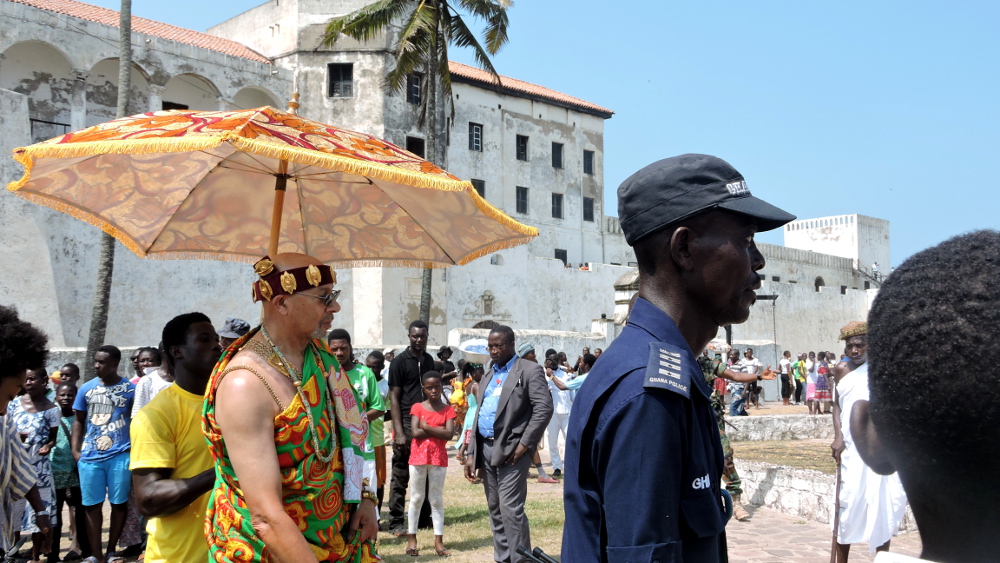
There were other beauties in the entourage.
Before the president arrived, there was a big increase in police and military.
Then black limousines drove up the hill.

No idea in which one car was the president.
Later on, someone pointed out to me who the vice-president was.

Given all the festivities, I’d have expected a larger crowd.
One speech followed the next and I decided to go to the fort and enjoy the quiet.
 courtyard Fort St. Jago da Mina
courtyard Fort St. Jago da Mina
Late in the afternoon I returned to the peaceful oasis of Nana’s family.
This had been a wonderful diversion.
I had often asked myself why girls had such short hair when the turn six years old. The reason: schools didn’t allow styled hair and they had to cut their hair very short. I thought it was a pity because I saw very creative hair styles on the younger ones.
On Sunday I had to say good-bye because I was expecting a longer stay in Accra to get visas.
The route there was one of the most beautiful in a long time. Along the coast and at least in the beginning not too hilly. If only I hadn’t been pushed off the road and onto the shoulder so often. There was a lot of garbage, broken parts, and other stuff.
I had more flats on this stretch than on any other one, and certainly the most spectacular one.
Accra, the capital
I was worried about the traffic in Accra. Fortunately, the city turned out to be a lot more bike friendly than Kumasi.
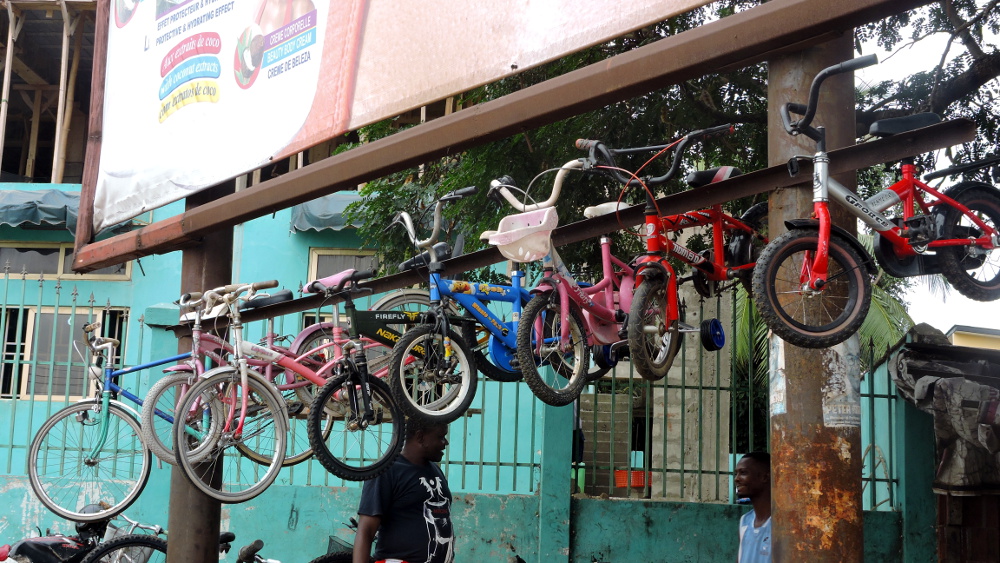
bicycles of the rack
Every day I sped through the city from embassy to embassy and got a good overview.

“old prison” at the Ussher fort

graffiti “old prison” at the Ussher fort
Even so Accra was predominantly Christian, one couldn’t miss the Moslems.
There was a variety of different Christian churches. In Accra there were a lot of Pentecostal churches which were made up of smaller congregations. There were hundreds of them in Accra alone. There wasn’t a church that matched the mosque in size but there were many small ones.
And of course, there were a lot of monuments and parks in the city.
Unfortunately, I hadn’t seen that one wasn’t allowed to take photos.
Surprised?
There was even a beach but I wouldn’t want to swim there.
Much earlier than expected I got my visa and once again not enough time to write another blog.
I continued along the coast to Togo and there were a lot of beautiful beaches.

North of Accra
The only city on my way was Keta which still had old houses built by the Danes. And there was even a Fort Prinzenstein. For a short period, this was where slaves were collected. In 1803 Denmark became the first country to abolish slavery.
Unfortunately, the old houses are very run down.
The promontory was getting more and more narrow because of erosion and there was hardly any land left between the lagoon and the ocean.
North of Keta, just a few kilometers from Togo, I was invited by a young teacher.

saline North of Keta
On the ocean side was a beach and palms and on the side of the lagoon, salt was harvested.
In between was a road and houses and there wasn’t space for anything else. Not even for graves. Those were placed individually, even in the school yard. The children played on them without second thought which was an unusual way to deal with death.
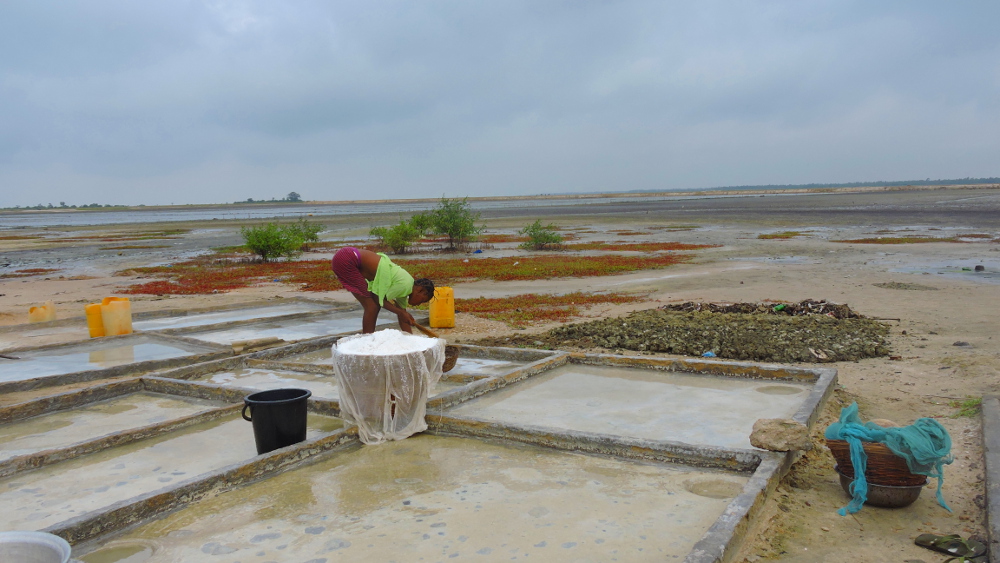
get salt out of the Keta lagoon
The young teacher showed me his village and how salt was harvested. The factory belonged to someone from the UK. It was a slow and laborious process to scoop the salt by hand from the sea. Father did it, the daughter did it, and so would the son.
They accepted it.
The teacher said, “The Africans don’t show any initiative”.
In the morning I was at the border with Togo.
I had been on the road for 220 days and cycled 13,148 kilometers. 1,420 in Ghana.
